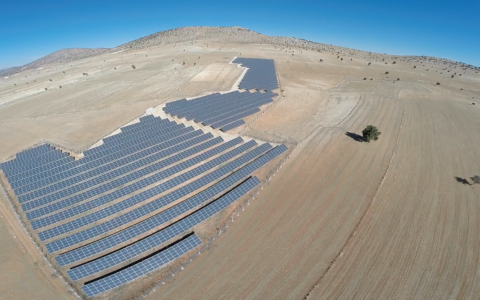Tropical Landscape Finance Facility
Tropical Landscape Finance Facility
Project Overall Goal
To plant rubber trees across concession areas in Indonesia’s Jambi and East Kalimantan provinces
Executive Summary
The Tropical Landscapes Finance Facility (TLFF) is a multi-stakeholder partnership between the UN Environment Programme (UN Environment), The World Agroforestry Centre (ICRAF), BNP Paribas, and ADM Capital. TLFF aims to finance local projects and companies in Indonesia that are focused on green growth and sustainable rural livelihoods, in line with the Indonesian Government priorities, the Paris Agreement and the Sustainable Development Goals.
TLFF’s first transaction is a sustainability bond for PT Royal Lestari Utama (RLU), a rubber company joint venture between Michelin and a subsidiary of Indonesia’s Barito Pacific Group. The transaction is the first corporate sustainability bond issued in Asia. The use of proceeds from the bond are to finance the production of sustainable natural rubber, the restoration of forested buffer zones and the implementation of a Community Partnership Programme (CPP) in Jambi and East Kalimantan provinces. RLU sought to develop a large-scale sustainable rubber plantation in an area of Indonesia suffering from deforestation, in part from encroachment. The plantation requires a long period of development, since rubber trees require 6-7 years of growth before production. A project of this nature and size requires significant upfront capital, with an extended timeline for repayment. Investors need to be comfortable with the cyclical nature of production, the tenor of the project, the creditworthiness of the borrower, as well as the risks associated with commodity volatility. Despite a growing appetite around sustainable land use and responsible financing, RLU faced significant barriers to identifying viable sources of commercial capital at a required tenor.
The scale and blended element of the sustainability bond allowed for notes to be effectively securitized and tranched to match the risk return profiles of diverse investors, ranging from impact-first investors to institutional investors in Southeast Asia (e.g., life insurance companies).
Michelin, the global tire manufacturer, will act as an offtaker of at least 75% of future production, and USAID’s Development Credit Authority (DCA)provided a partial credit guarantee. The transaction was Asia’s first corporate sustainability bond, with an innovative multi-tranche class structure that appeals to investors with diverse risk-return and tenor requirements. Class A notes, comprising $30 million, were rated Aaa by Moody’s and subscribed by institutional investors from Southeast Asia, such as life insurance companies.





